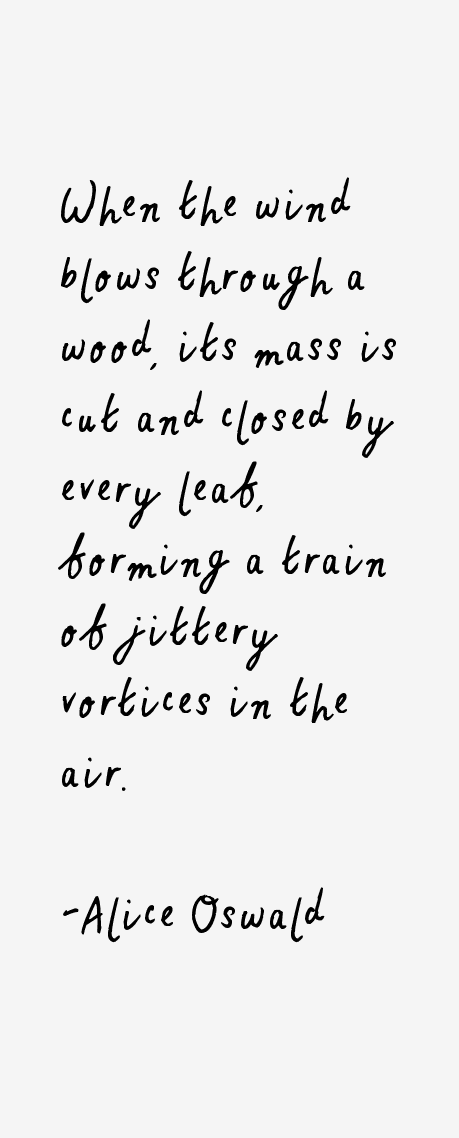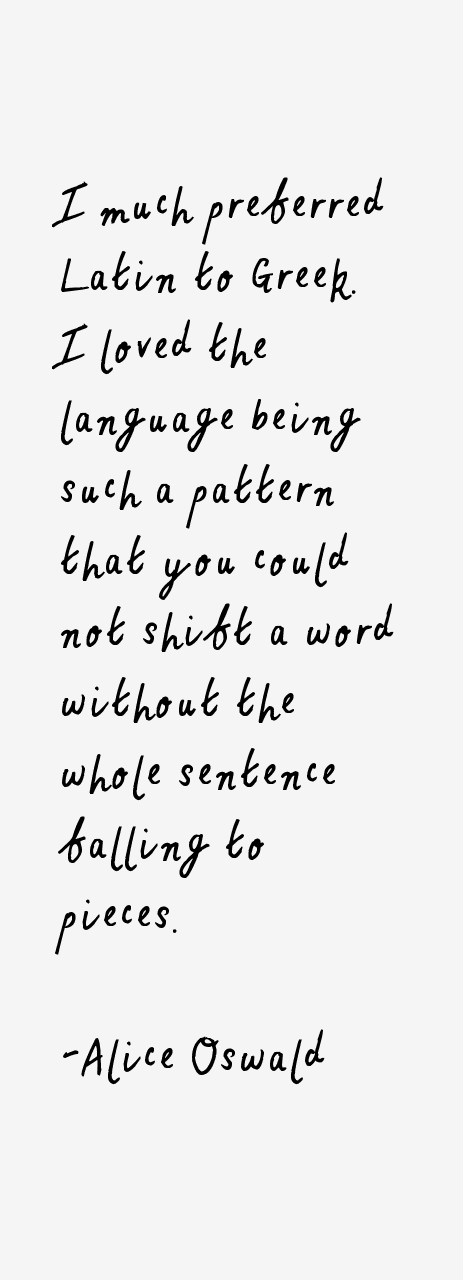Alice Oswald Quotes & Sayings (Page 2)
Alice Oswald quotes and sayings page 2 (poet). Here's quote # 11 through 20 out of the 38 we have.

“When the wind blows through a wood, its mass is cut and closed by every leaf, forming a train of jittery vortices in the air.”
“Even when writing your own poems, you need to talk to people; you need to magpie around, getting words and things. I'm very against the celebrity culture that wants to say: 'this is a genius, this is one person who has done something brilliant.' There are always a hundred people in the background who have helped to make it.”
“I have this exercise where I force myself to look out from the flower's point of view at these great walloping humans coming down the path, and try, just try and feel it from their point of view because it's a different world to them, a fascinating hard one.”
“I've always felt, with 'The Iliad,' a real frustration that it's read wrong. That it's turned into this public school poem, which I don't think it is. That glamorising of war, and white-limbed, flowing-haired Greek heroes - it's become a cliched, British empire part of our culture.”
“A living tree is a changing, sleeve shape, a wet, thin, bright green creature that survives in the thin layer between heartwood and bark. It stands waiting for light, which it catches in the close-woven sieves of its leaves.”
“Topsoil is a place of digestion. It sucks and chews things into smaller pieces. When it's hungry, it turns grey and stony; when it's thirsty, it opens thousands of cracked lips. Subsoil is more skeletal: it doesn't digest.”
“I think it is the easiest mentality for a human being to be either colonized or to colonize. The structure of either the slave or the master seems to be the simplest and the most relaxing one to slip into. Either you are a slave, and you don't have to think for yourself, or you're a master, and you don't have to work for yourself.”
“One of the rules of Greek lament poetry is that it mustn't mention the dead by name in case of invoking a ghost. Maybe the 'Iliad,' crowded with names, is more than a poem. Maybe it's a dangerous piece of the brightness of both this world and the next.”

“I much preferred Latin to Greek. I loved the language being such a pattern that you could not shift a word without the whole sentence falling to pieces.”

“Wind ought to be a verb or an adverb. It isn't really anything. It's a manner of movement of warmth and cold: a kind of information system of the air.”
Alice Oswald Quotes Rating
No Ratings Yet
Leave A Comment
























